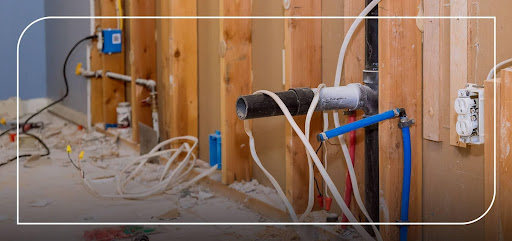
Your home is one of your most important assets, so naturally, you want to ensure your homeowner’s insurance policy provides you with protection and also covers a broader range of circumstances.
To avoid being underinsured, the Insurance Information Institute (III) recommends you ask your independent agent the following questions:
- Do I have enough insurance to rebuild my home in the event of a complete loss?
- Do I have enough insurance to replace my possessions?
- Do I have enough coverage for additional living expenses if I am displaced?
- Do I have enough insurance to protect my assets and way of life?
For homeowners doing renovations like adding a new room, re-doing a bathroom, enclosing a porch, or putting in a swimming pool or hot tub, you also risk being underinsured if the changes aren’t reported to your insurer, according to III. So what kind of policy changes should you make?
Home Additions and Remodels
If you are adding onto your home and modifying a floor plan, it’s recommended you increase your dwelling coverage to account for the additional square footage.
You may also need to increase your dwelling coverage if you remodel a room like a kitchen or bathroom because new project materials add value to the overall structure and would cost more should you need to replace them in the event of an incident.
Garages, Sheds, Fences and Driveways
If you plan on doing work outside your home on things like detached garages, sheds, fences, and driveways, you should increase your other structures coverage under your homeowner’s policy. Your agent can go over the exact details about the risks associated with these types of projects and what would be covered if you purchase extra coverage.
Swimming Pools and Hot Tubs
Swimming pools and hot tubs add to your home’s liability risk because they are both potential drowning hazards and could make you a target for lawsuits. If you’re planning to add either of these luxuries, it’s recommended you increase your personal liability coverage limit or add umbrella coverage.
Contractors and Subcontractors
Because the construction process itself will involve heavy equipment, sharp tools and other dangers, III recommends you verify the insurance coverage of all contractors and subcontractors you hire. You should also ask to see a copy of your general contractor’s workers compensation policy – if applicable in the state you live.
Theft Coverage
With MAPFRE, you can purchase the Theft for Dwellings Under Construction endorsement to cover construction materials that may get stolen on the property during a renovation. Those items may include lumber, bags of concrete, and copper/PVC pipes.
Renovations That May Lower Your Home Insurance Premium
Some home improvement projects may actually lower your home insurance premium. For instance, if you install a new roof to better protect your home against inclement weather, you will less likely need to file a claim for water damage. If you upgrade your electrical wiring, you lower the risk of fires and electrical damage. Upgrading your plumbing may reduce the risk of water damage.
Installing smart, motion-activated home security cameras that can alert you on your phone when they detect motion or devices that alert the authorities in the event of a break-in or fire, can also benefit your home insurance policy.
Your agent can explain whether you may qualify for a discount with one of these devices or home improvements.
Remember, before doing any home improvement project, make sure you have the right insurance coverage for your home by calling Hunter Insurance at 769.9500.
Credit: MAPFRE





